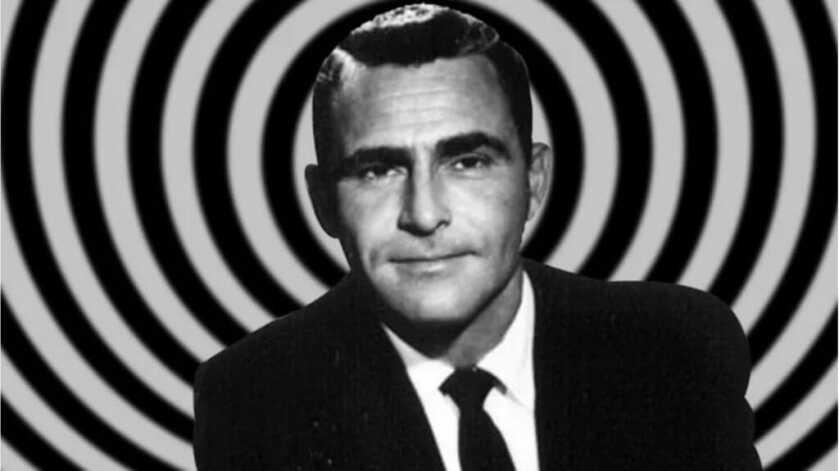
Estimated reading time: 14 minutes
The Twilight Zone ran for five years starting in 1959. Shot entirely in black and white with fairly rudimentary special effects, The Twilight Zone was a great example of what can be accomplished in a TV medium with limited resources and some truly superlative writing. The Twilight Zone orbited around the genres of black comedy, drama, absurdism, horror, and science fiction.
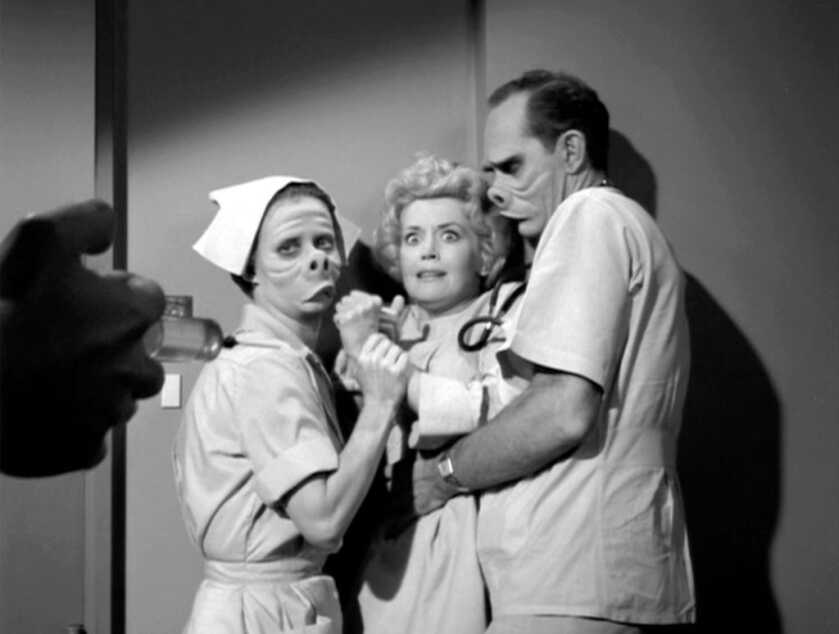
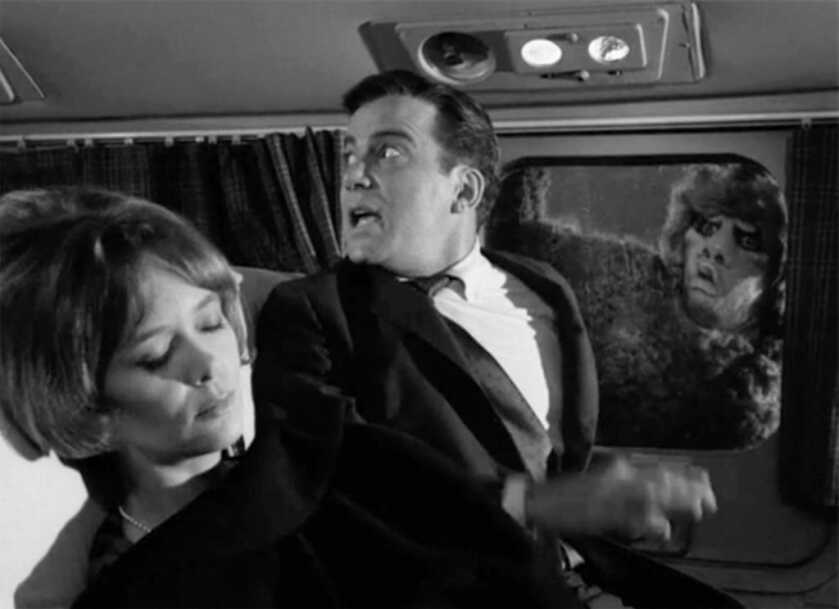
The Twilight Zone really did make you think. It was deep, cerebral, and at times genuinely horrifying. Like most truly revolutionary artistic endeavors, The Twilight Zone was the product of a singularly creative mind. Rod Serling, the true father of The Twilight Zone, was a remarkable man indeed.
The Guy
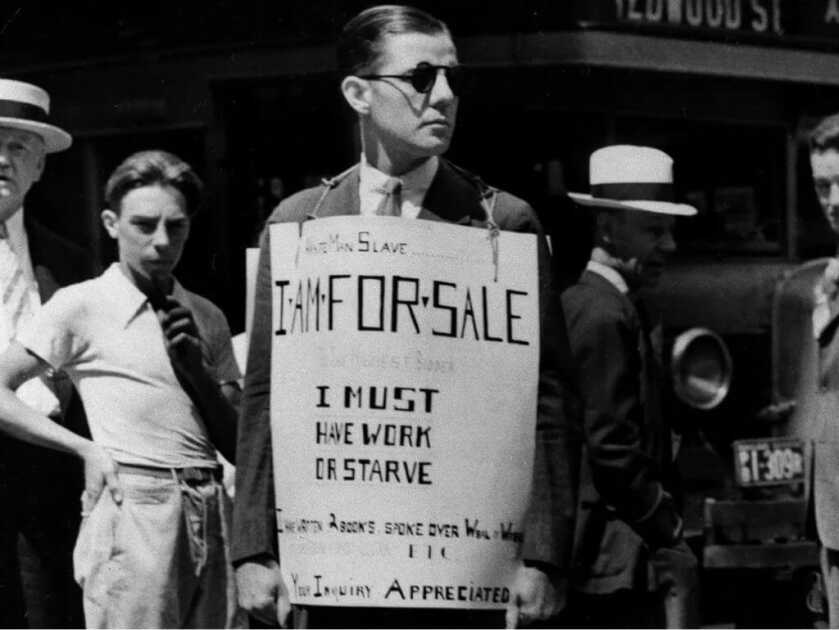
Rodman Edward Serling was the second of two sons born to Jewish parents in 1924, in Syracuse, New York. His father had been an amateur inventor until the kids showed up and he had to find honest work as a grocer and butcher. The patriarch lost his job in the Great Depression and did what it took to scrape by just like everybody else.

Young Rod was a born performer and the class clown. He enjoyed public speaking and excelled in debate. While in High School he was competitive at both tennis and ping pong. Serling tried out for the football team but was told that, at five foot four, he was much too small.
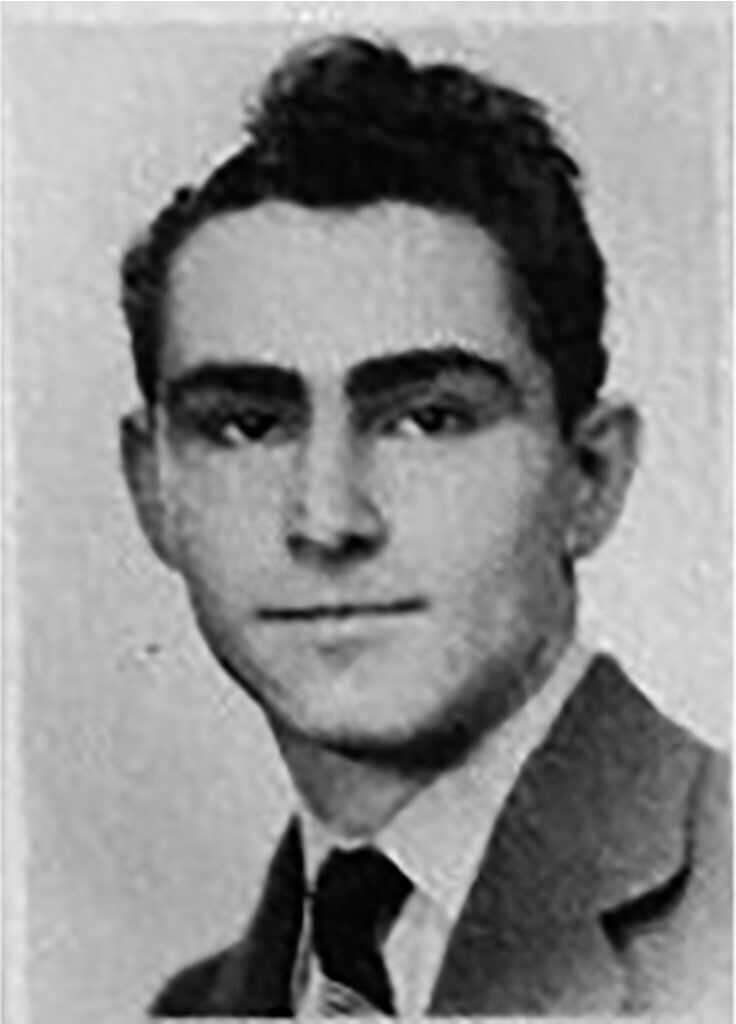
Serling was editor of his school newspaper and used this venue to advance various social causes including support for the brewing war against the Axis. He was accepted to college in his senior year but turned it down to enlist in the Army. Only vehement intervention by his Civics teacher convinced the boy to wait until graduation. Rod Serling was rabid to serve his country.
Rod Serling Going to War
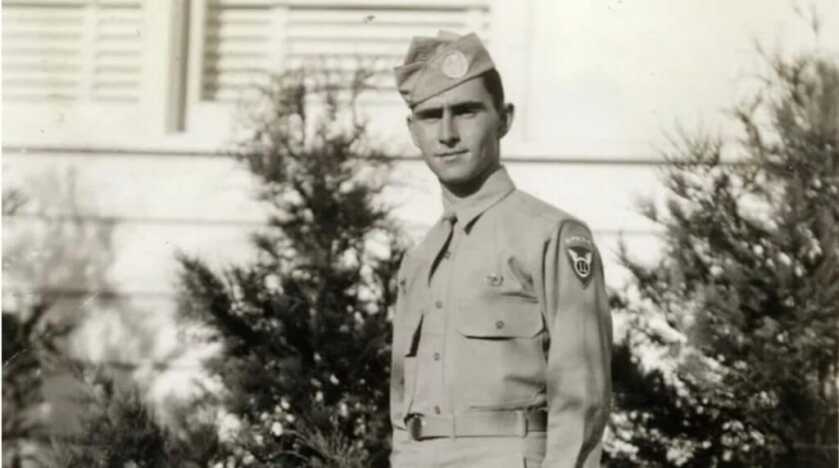
Rod Serling fancied himself airborne material and volunteered for the paratroops. He was initially told he was too small but simply would not take “no” for an answer. In 1943 he found himself at Camp Toccoa, Georgia, serving under Colonel Orin “Hard Rock” Haugen. He was later assigned to the 511th Parachute Infantry Regiment of the 11th Airborne Division—“The Angels.”
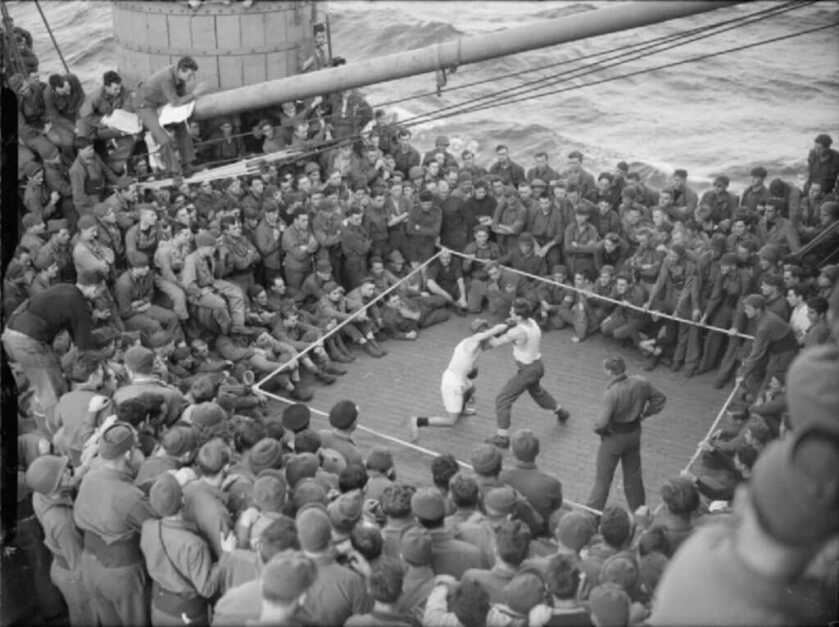
Serling had a lot of nervous energy. The stresses of combat training did not make that better. As an outlet to vent his aggression this diminutive kid threw himself into boxing. He competed in seventeen bouts as a flyweight. Observers described him as an absolute berserker in the ring. He attempted to compete in Golden Gloves as well. Before being simply beaten down, he had his nose broken twice.
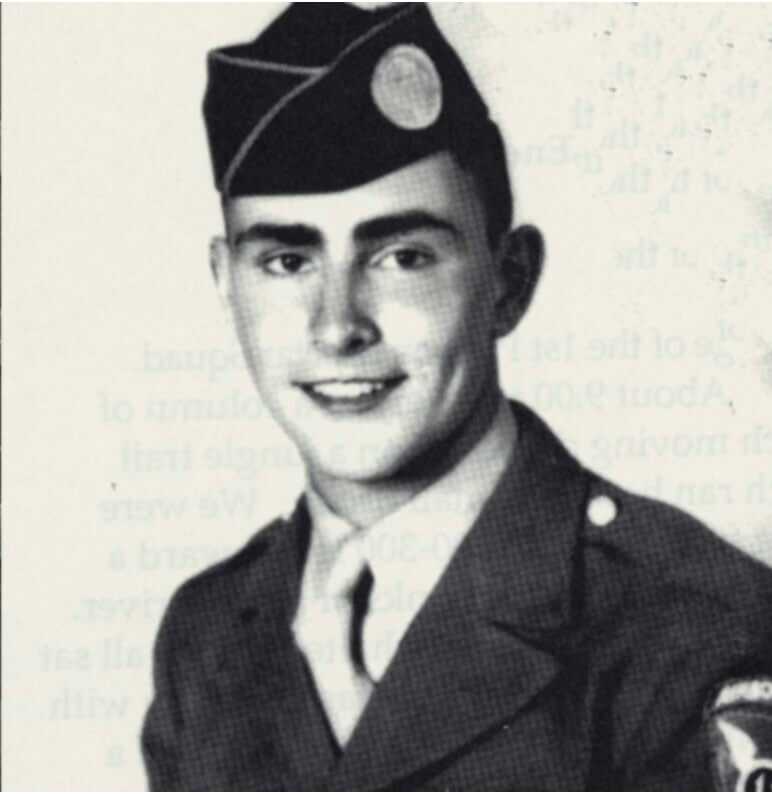
Different Than Rod’s Plans
As a Jew, Serling had hoped to go to Europe to fight the Nazis. However, fate sent him west instead. He first saw action in the invasion of the Philippines. In this fight, the 11th Airborne did not conduct widespread parachute assaults but was rather used as elite infantry. In short order, Serling and his mates were in a desperate fight to the death with the Japanese on the island of Leyte.
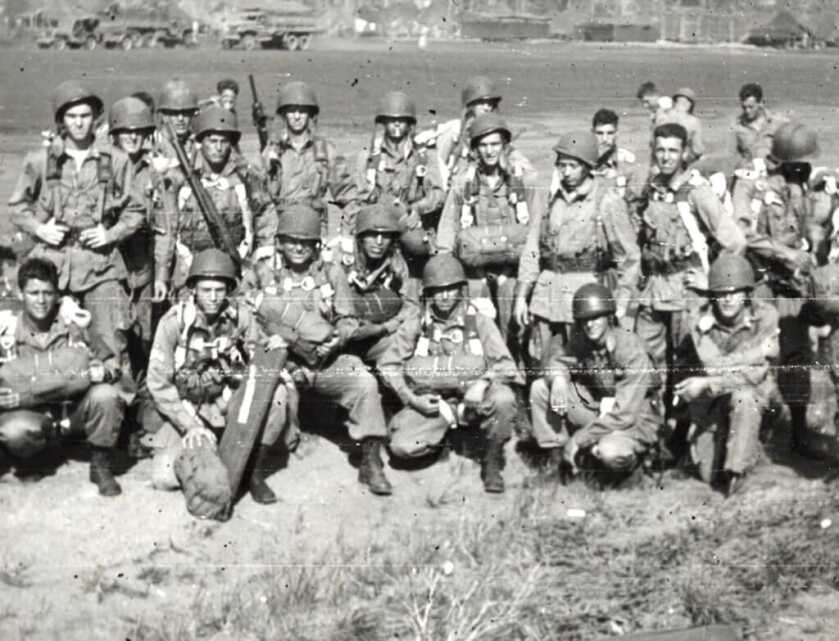
Serling could be caustic, and at some point, he rubbed somebody important the wrong way. This earned him a posting to the 511th Demolition Platoon. This hardscrabble mob was called the “Suicide Squad” in recognition of its astronomical casualty rate in combat. Sergeant Frank Lewis, his Platoon Sergeant, had this to say of him, “He screwed up somewhere along the line. Apparently, he got on someone’s nerves…he didn’t have the wits or aggressiveness required for combat.”
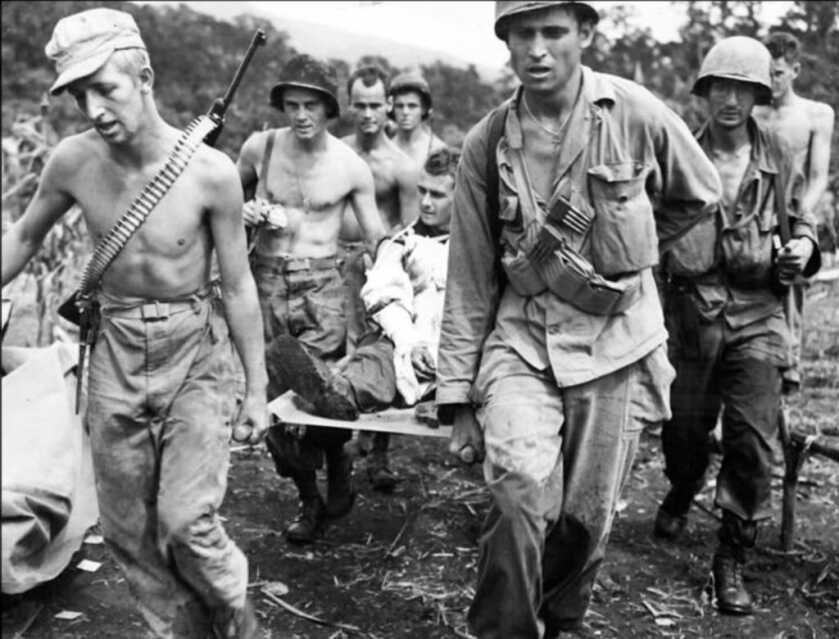
Rod Serling Saw Many Battle Horrors
Lewis observed that when Serling and others were trapped in a foxhole during a firefight waiting for darkness, he noticed that Serling had not reloaded any of his extra carbine magazines. The diminutive paratrooper often inexplicably went exploring on his own against orders and got lost. In this horrible place at this horrible time, given such gross inattention to security, it is amazing the man survived.
SEE MORE: Don’t Go Into the Swamp: Crocodiles and the Japanese Type 99 Rifle
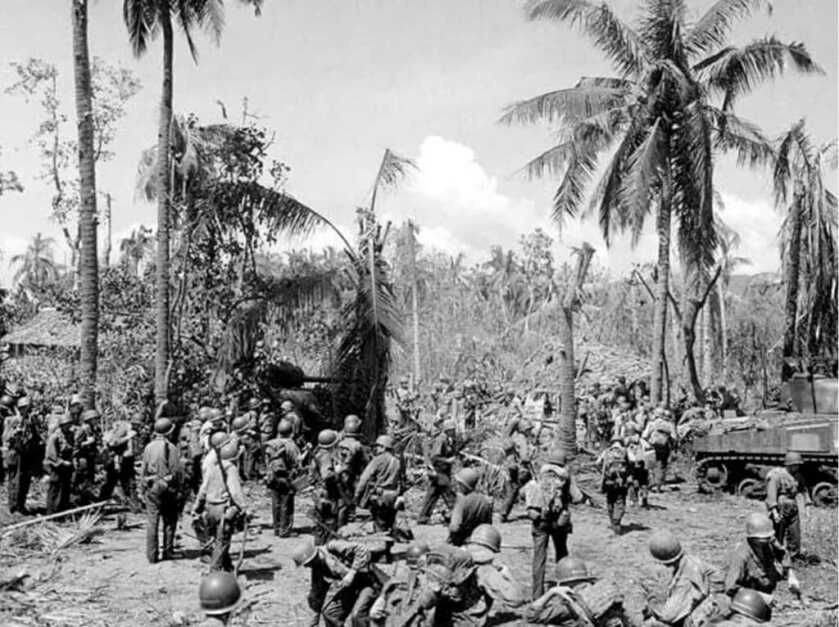
The horrors of jungle combat changed this young kid from New York and went on to shape his career as a writer. While operating in the mountainous regions of Leyte, the only means of resupply was by air. At one point a fellow Jewish soldier named Melvin Levy was entertaining his mates with an improvised comic monologue while they caught some shade underneath a palm tree. At that very moment, a crate of food airdropped from an American cargo plane unexpectedly decapitated his friend. His buddy Serling subsequently led the man’s funeral service and placed the Star of David atop his grave.
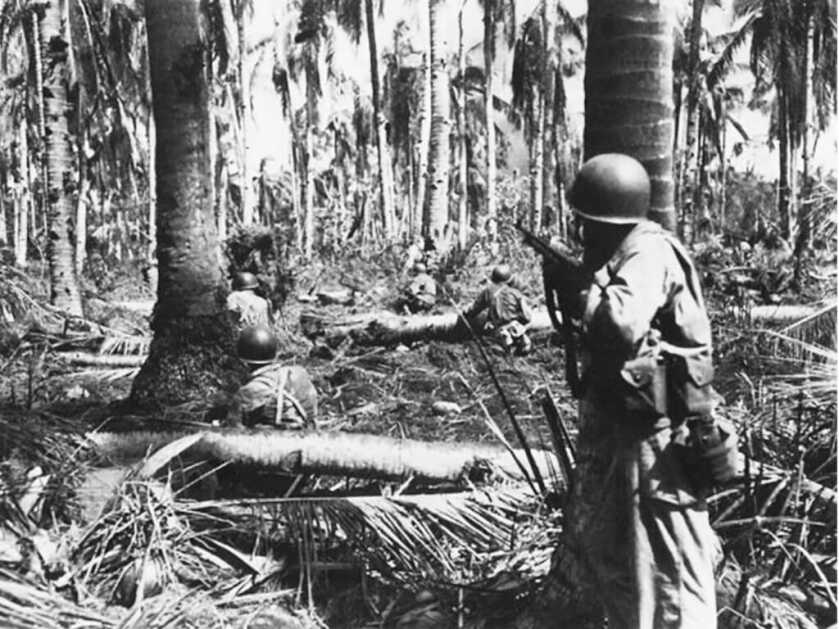
While liberating Luzon, Serling and his fellow Demo men were tasked to destroy innumerable concealed pillboxes and similar fixed fortifications. At one point Serling entered a supposedly abandoned blockhouse only to find a Japanese soldier waiting with a rifle. Before either man could react, one of Serling’s fellow paratroopers shot and killed the enemy soldier.

Bronze Star Actions
Along the way, Serling was wounded twice, once in the kneecap. Ouch. By February of 1945, Serling and his buddies liberated Manila in some of the bitterest urban combat of the war. As the Allied forces pushed the Japanese out block by block, there erupted spontaneous celebrations on the part of the liberated Filipinos. At one of these impromptu parties, women were dancing in the street as the Japanese began raining down accurate artillery fire. Serling broke cover and ran out into the open to drag a wounded Filipino woman to safety. He took home the Bronze Star for this action.

The commander of the Japanese forces defending Manila was one Admiral Sanji Iwabuchi. He had arrayed 17,000 fanatical Japanese troops across the city amidst a series of well-sited and meticulously-crafted defensive works. By the time Serling and his comrades had finally pulverized the Japanese defenses, the 511th PIR had suffered 50% casualties with more than 400 men killed. During this hard-fought battle, Serling was wounded by an anti-aircraft gun that the Japanese had turned earthward against the assaulting Americans. After a stint in New Guinea to recover, he rejoined his unit in Manila to finish mopping up.
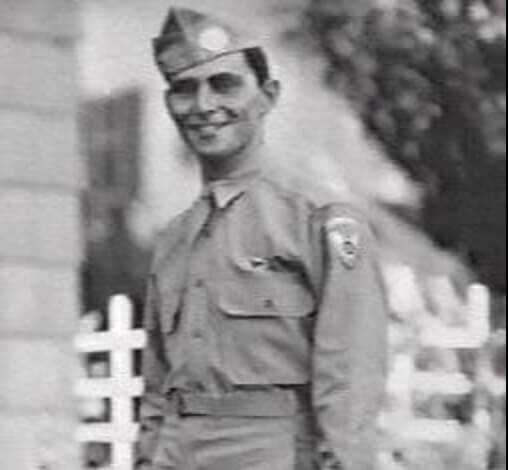
Rod Serling’s final posting was to the Army of Occupation in Japan. During his three years in the military, Serling had not been promoted beyond private. His surly disposition and flighty behavior had hamstrung his leadership prospects. He finished the war as a Technician Fourth Grade (T/4).
Rod Serling’s Rifle
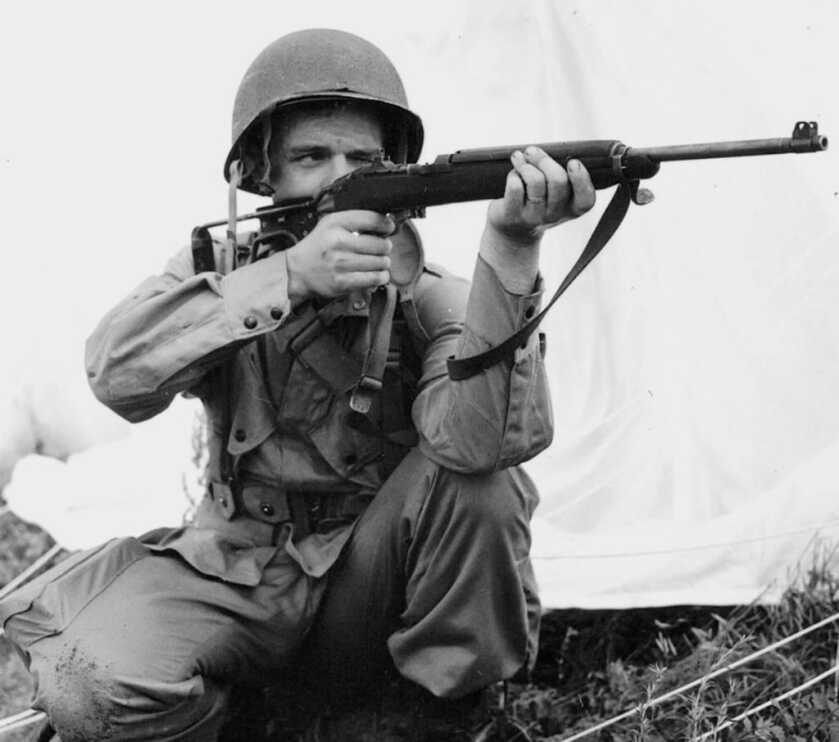
Combat during WW2 was a frenetic, chaotic thing. Many of the vets I have known said they regularly swapped weapons around as operational needs demanded. However, as near as I could tell, most of Rod Serling’s time in combat was spent behind an M1 carbine. Given his primary mission as a demolition specialist, this is not surprising. The handy little carbine was designed for precisely these applications.

We have covered the origin story of the carbine before. Its design was almost an afterthought. A handful of Winchester engineers bodged the little gun together in just thirteen days. The carbine went on to become the most-produced American combat weapon of the war with more than six million copies seeing service.

The carbine has been oft-maligned for its modest stopping power relative to the M1 Garand battle rifle of the day. This really isn’t a fair characterization. The carbine was designed to supplant the M1911A1 handgun, not the service rifle. When compared to a pistol, the carbine was much easier to shoot well and markedly more effective downrange. A good friend who carried one in Italy during the war once told me the carbine was more than adequate to do the job, just that it might take two or three rounds to put a man down.
The Rest of the Story
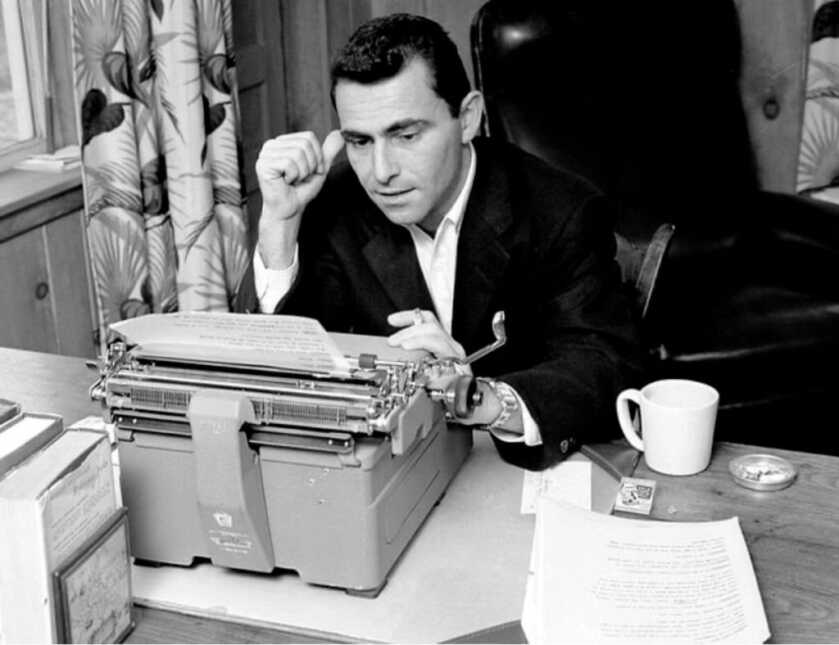
Like most of those great old guys who left home and hearth to travel around the globe to free the world, T/4 Rod Serling returned to the States with some emotional baggage. He had lived unimaginable fear, dispensed death, and lost friends at intimate ranges. In response to all this pain, chaos, and tragedy, he began to write as a sort of catharsis. With this as a basis, he produced some of the most delightfully macabre storylines.
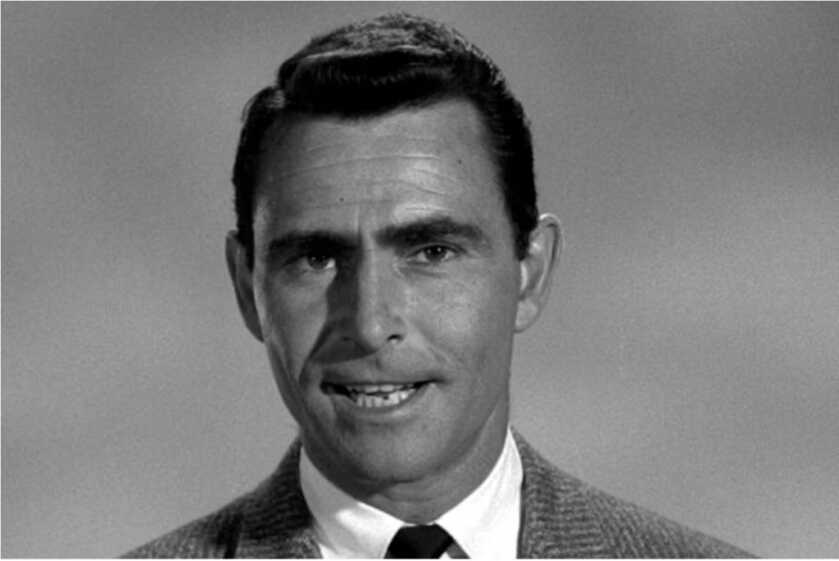
Rod Serling eventually went on to become one of the most well-known figures in television. He worked as a writer, producer, narrator, and playwright. He also taught his craft at Ithaca College in New York and Antioch College in Ohio. I rather suspect his writing classes were just to die for. Throughout it all, Serling used his artistic medium to cope with the stresses he brought home from the war.
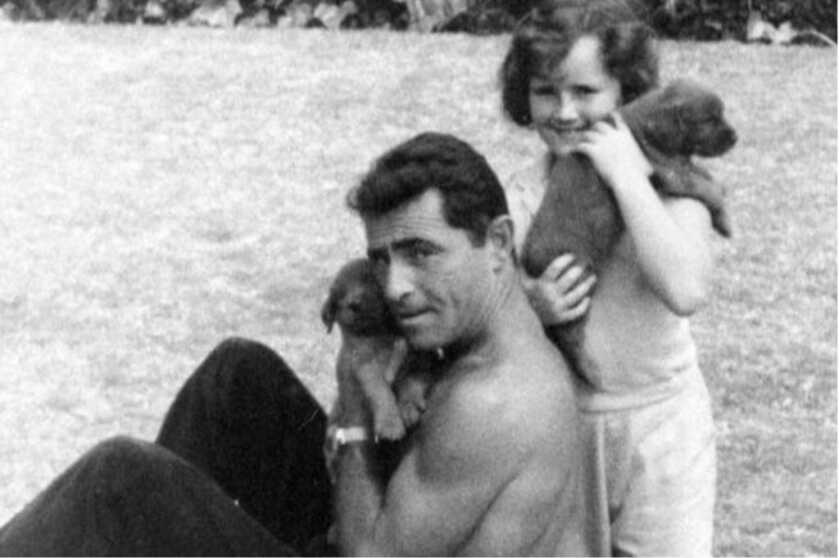
The Angry Young Man
From his earliest years, Rod Serling spoke out on such fulminant social issues as racial equality and censorship in the arts. He was an outspoken opponent of US involvement in Vietnam. Over time he became known as the “Angry Young Man” of Hollywood for his passionate clashes with both sponsors and TV execs.
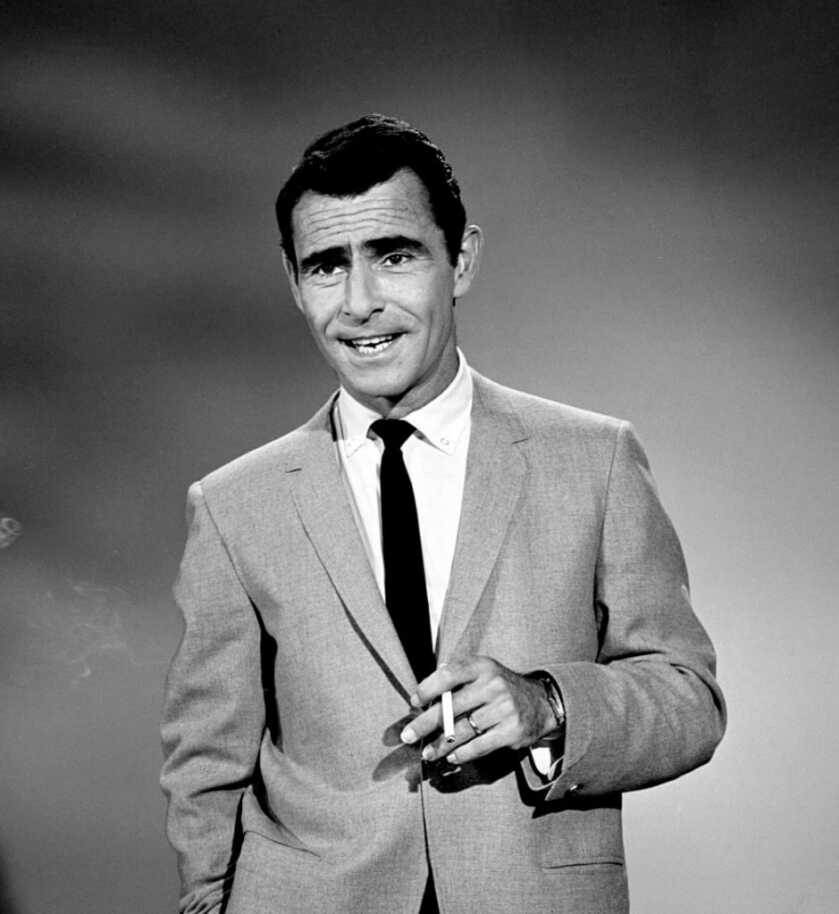
There is no more anxiety-producing human undertaking than combat on the front lines. This unfortunate reality combined with the ready availability of tobacco synergistically brought Serling home from the war with a three- to four-pack-a-day smoking habit. In early May 1975, the vile weed caught up with him and he had his first heart attack. A second cardiac event two weeks later forced his physicians to recommend an open-heart surgical procedure in an effort to recanalize his coronary arteries. While such stuff is commonplace today, it was still fairly radical back in the 1970s.
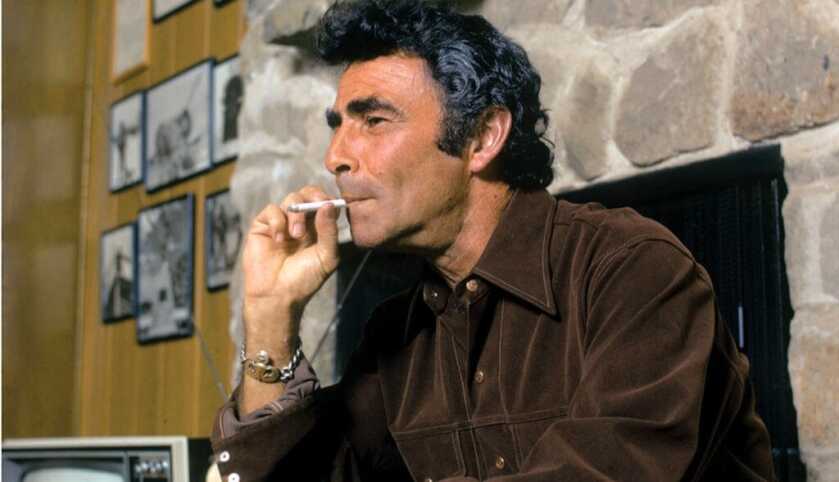
Serling survived the 10-hour operation but suffered a third cardiac blockage while on the table. He died two days later at age 50. One of his most remembered quotes of many was, “For civilization to survive, the human race has to remain civilized.” What an extraordinary guy.
*** Buy and Sell on GunsAmerica! ***


An article I read about him said he tended to burn his bridges in the entertainment industry. The author of that article knew him well and said he spoke to him for the last time on the streets of Hollywood, wandering around and unkempt. It was a very sad situation because he or she never saw him again after that.
Please tell me where I can get on eof those M1 slings! Always a great idea to carry more ammo.
what guy. watched all his shows growing up and some would leave you with nightmares later but for the goofy look of those in them they were what kept you coming back to watch more
i think what’s wrong today is we’ve lost those who know what it really means to be free and have the rights our forefathers gave us. those who were communist and there were those even as far back as the 30’s or earlier i’d bet now have come to be in power and those like this great man have been pushed out of places that once were there that loved our country and knew what it was really like if you didn’t fight back to stay free and have our rights. we know for one thing those who knew and tried to stop the communist in hollywood were right that they were there and all the crying you hear now about them saying it was just a witch hunt and the going after them was wrong have now become the heads of big tech which they use to stop free speech and push their lies. i feel so sad for the kids that’ll never know true freedom as they’re being brainwashed by the communist schools most have to got to. now they’re being told to change what god made them and butcher up their bodies cause some nut job tells them they should.
One of the best shows of all time! I am surprised there are so many fans on this website as Rod was a true progressive! Way ahead of his time.
That was when “progressives” actually believed in making progress…
Yet another informative and entertaining article, Doc. I look forward to your stories and find them very well researched and engaging in their content and style. BTW, Serling must have been charmed in some way because it’s not everyone who is wounded by an anti-aircraft gun that gets to tell folks about it later. Keep up the great work, Doc!
Doc, another great article, I am claiming you were right about the carbine sling holding the cartridges, never knew all of this of Rod Serling, used to stay up late and watch the Twilight Zone with my older brother!
Thank you,
A model for many reporters to follow, an obit done with remarkable grace and understanding.
Thanks Doc for bringing the man behind a show I tried to never miss as a youth.
There is a lot more about Sterling on Wiki site. He had some interesting jobs.
I was seven or eight years old when the Twilight Zone stared to air on TV. When I was six I had been sick and they needed to occupy my time at home with something. Dad bought our first black and white (that is the picture for you younguns) TV. I remember watching Rod and probably viewed every episode of the Twilight Zone. Have always been a Sci Fi fan and read stories and books about it. I Especially liked time travel. Rod provided some of that.
But I think my favorite episode was when the small space craft crashed through the roof of a house. The occupants of the craft were miniature compared to the occupants of the house. Later you find that the flying saucer was from the USA. Rod was always twisting and turning the plot.
Thank you for this article. It brings back good memories of when entertainment was actually better than today. Rod’s shows are still airing on TV just like Andy Griffith. It’s a tribute to their lasting entertainment value.
Rod Serling was the guy that made me fall in love for the first time in my life. Not with him. But with Inger Steven’s. The Hitch Hiker is my hands down favorite episode. Nan was dead but didn’t realize it. I still love watching that episode and I’m still in love with Inger.All my life I’ve chased women that look like her. Ok, the fuel gauge is getting low and I need to gas up with some Magnum HiTest. It’s only sold at one filling station only in one place and I know Nan is waiting for me there….only in the Twilight Zone.
Like many others, I enjoy your articles. I wish this article included a little information on Mr. Serling’s family life. Marriage(s), Children etc. The picture of him with the little girl and the two puppies was “cute” and peaked my curiosity. I know your emphasis is on firearms and combat, but briefly including that information might have helped round out our understanding of the man. Best Wishes.
Great article! I remember his TV ads about preventing forest fires. A lit butt was flicked from fingers accompanied with the sound of a gunshot.
I have never understood the bad rap the Carbine gets. It has double the foot pounds of energy of the .45 and can be fired accurately almost as fast as a .22 rifle. With soft points it is a vicious weapon. With none of the “scary” accouterment of MSR’s even the Proggy states don’t try to outlaw them. Put on an Ultimak rail and a red dot and you are truly well armed for most situations. While not wildly effective beyond 100 yards, it will rain down on a target at 200 yards and as they say nobody will hang around for that.
My uncle was a Marine in the island campaigns operating a Browning 1919. One night he was in overwatch with it on a hill overlooking six Marines armed with Carbines dug in below. He said each man had “a pile” of Carbine mags in front of him. He said a 200 man Banzai charge surged from the jungle toward the six Marines who were furiously and accurately laying down fire on them. He claimed all six survived and killed all 200 attackers.
Really look forward to your articles. As a former “fling-winger” myself, I appreciate your service to our great country. Keep the interesting and informative articles coming.
His commitment to social causes is evident in several TZ shows. Another fine piece Dr. Dabbs.
I’ve always been a big Twilight Zone fan. Such thought provoking and deeply interesting stories, many of which can be seen as direct reflections of Rod’s wartime experiences.
I see old photos and movies with the actors smoking and cringe thinking about how cigarettes later killed them. John Wayne, Humphrey Bogart, Rod Serling, etc.
There is a claim that Wayne succumbed to possible radiation poisoning as opposed to tobacco, the filming of ‘The Conqueror’ (a terrible film) was near several nuclear testing sites, and many of the cast and crew died of cancer.
I read once about the area that most of the ‘cavalry’ films were shot at was a fallout area that the Army at the time thought were safe, but long term exposure took many lives. On one of the later films it took over half the cast and crew. John Ford, Wayne and the man that played his Sargent in a couple of those films. Many died later after beating cancer. Smoking did it’s damage, but it was not the only thing out there killing the great movie makers.